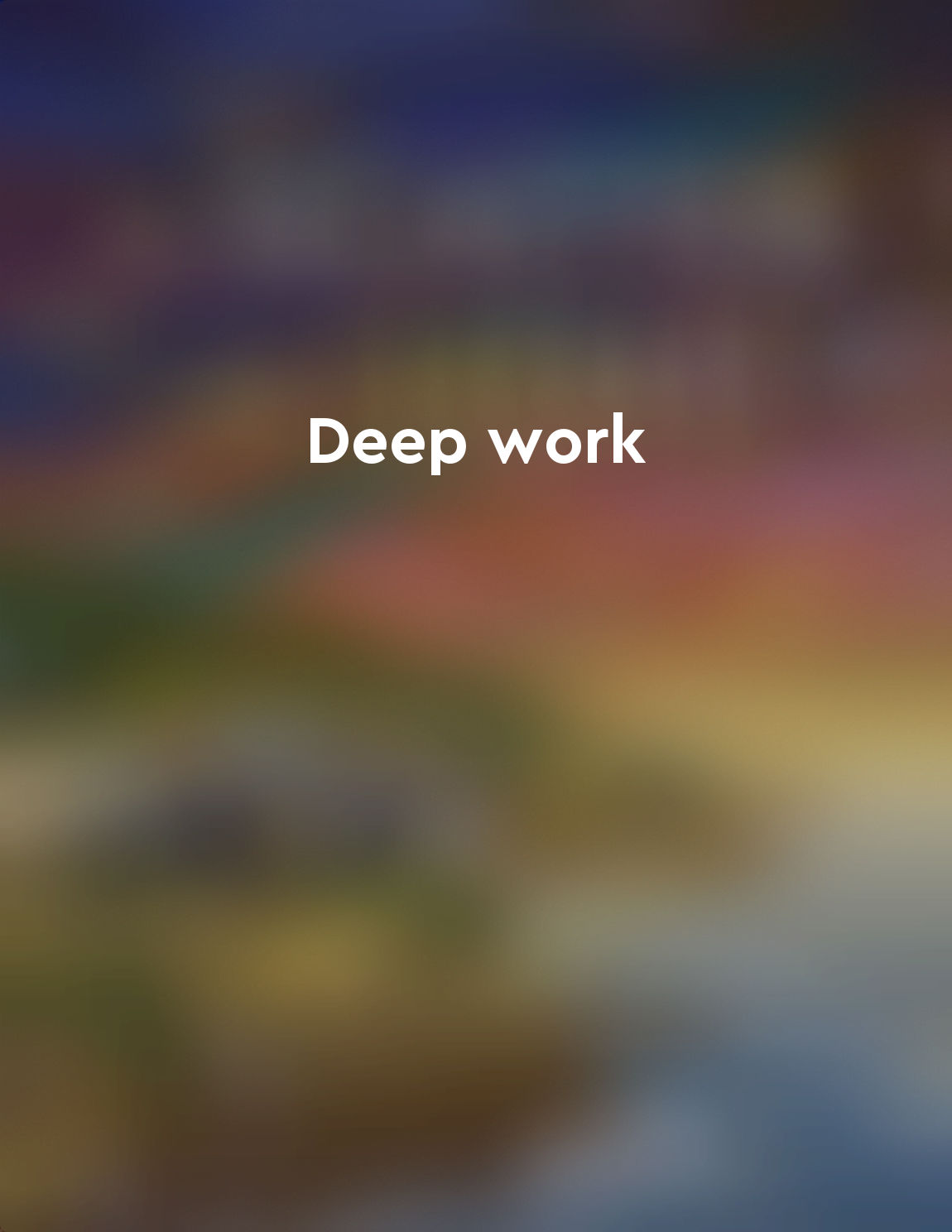Deep work leads to mastery from "summary" of Deep work by
The idea that deep work leads to mastery is a fundamental concept that underpins the pursuit of excellence in any field. It is based on the premise that in order to truly achieve mastery, one must engage in deep, focused work that allows for intense concentration and uninterrupted focus. This type of work is characterized by its intensity and its ability to push the limits of one's cognitive abilities. By immersing oneself in deep work, individuals are able to push past their comfort zones and challenge themselves to reach new levels of performance. This intense focus allows for the development of skills and expertise that are not attainable through shallow, distracted work. In essence, deep work is the key to unlocking one's full potential and achieving mastery in a particular domain. The concept of deep work also emphasizes the importance of deliberate practice in the pursuit of mastery. Deliberate practice is a focused, structured approach to skill development that involves setting specific goals, seeking feedback, and constantly pushing oneself to improve. This type of practice is essential for achieving mastery, as it allows individuals to identify their weaknesses and work towards overcoming them. Furthermore, deep work requires individuals to cultivate a mindset of discipline and perseverance. It is not easy to engage in deep work, as it often requires sacrificing immediate gratification in favor of long-term goals. However, those who are able to commit to this type of work are more likely to achieve mastery and excel in their chosen field.- The concept of deep work leading to mastery underscores the importance of intense focus, deliberate practice, and a mindset of discipline. By immersing oneself in deep work and pushing past the limits of their cognitive abilities, individuals can unlock their full potential and achieve mastery in their respective fields.


